That Should Be The Title Of Your Autobiography should be the title of your autobiography.
My micro life: 10:07am, 21 March 2013
That awkward moment when you have an Aaron Sorkin-style pedeconference with a colleague who it turns out is actually rather determinedly heading for the toilet.
“Are you sure you want to cancel this action?”
“Who told the gorilla that he couldn’t go to the ballet?”
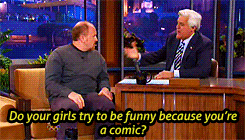
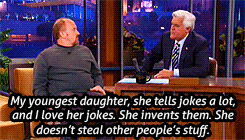
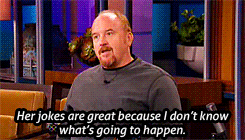
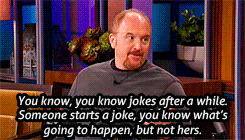
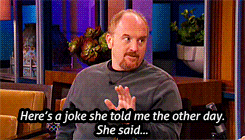
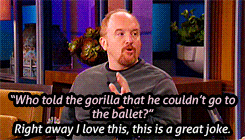
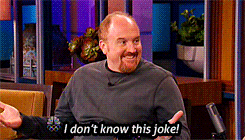
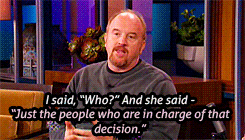
My micro life: 9:26pm, 6 March 2013
Funny how ideas often seem to come to us in the shower. I wonder if that’s how it was for the person whose idea was ‘invent the shower’.
My micro life: 5:33pm, 2 March 2013
Opinions are like arseholes: people are generally reluctant to modify them.
World domination for beginners
Daughter (5): “How long does it take to take over the world?”
Me: “I can’t really answer that, because nobody’s ever taken over the world.”
Daughter: “Jesus did.”
“(Will Self’s) Umbrella did not convince me that the dominance of conventional narrative is evidence of cowardice or feeble-mindedness in readers or writers”
Umbrella is undeniably difficult reading, although I found it less and less taxing as I went, a phenomenon that had something to do with the book teaching me how to read it, but probably more to do with a slight easing of Self’s stylistic zealotry somewhere around page fifty. I had the sense that, despite himself, Self became invested in conveying a story. Scenes became longer; characters had decipherable conversations; events caused other events. Any sentence might end by teleporting you from 1971 to 1918, but once you got your bearings, the plot picked up more or less where it left off the last time you’d been in that particular era.
There’s a slightly defensive tone to Maggie Shipstead’s review of Will Self’s modernist novel Umbrella, but it’s nevertheless interesting to note the way in which Self lets narrative intrude
on his experimental opus. The sequences I enjoyed and admired the most were invariably those in which characters engaged in recognisable action and dialogue with each other; turning points in ‘the story’, rendered more or less as conventional ‘scenes’, but composed in the (mostly) uncompromising style that this novel demanded Self invent for it.
“The finest teen writing should fill the adult reader with a sense of loss and longing”
Some teens are tremendously smart, with searing curiosity and vocabularies that exceed their horizons, others not so much. Hence we don’t write for teens, so much as for a subset of teens. Most often, this subset closely reflects the teens we ourselves once were.
Author Bernard Beckett touches on some interesting points about adults and their interest in teen fiction in this post for the Writing Teen Novels blog about the difficulties of defining young adult literature.
“They may have fought every social compulsion to ‘grow up’, their inner world constellated around avoiding that surrender”
Some hard and beautiful observations from Rachel Cusk in a considered piece for The Guardian about the value of creative writing courses:
Language is not only the medium through which existence is transacted, it constitutes our central experiences of social and moral content, of such concepts as freedom and truth, and, most importantly, of individuality and the self; it is also a system of lies, evasions, propaganda, misrepresentation and conformity. Very often a desire to write is a desire to live more honestly through language; the student feels the need to assert a ‘true’ self through the language system, perhaps for the reason that this same system, so intrinsic to every social and personal network, has given rise to a ‘false’ self.
A piece of music or a work of art might echo to the sense of a ‘true’ self, but it is often through language that an adult seeks self-activation, origination, for the reason that language is the medium, the brokering mechanism, of self. The notion of ‘finding your voice’, simplistic as it may sound, is a therapeutic necessity, and for many people a matter of real urgency. It is also – or ought to be – a social goal. If the expansion of creative writing courses signifies anything, it isn’t the cynicism of universities or the self-deception of would-be students: it means, simply, that our manner of life is dishonest, that it offers too few opportunities for self-expression, and that, for some people, there is too great a disjuncture between how things seem and how they actually feel.
A writer may be someone who has never lost their voice, or has always had it; for a number of reasons, they have withheld themselves from immersion in the social contract.
“I’ve come to think that writing is more surprise than certainty”
Jenny Diski writing for the London Review of Books blog on writer’s block, panic and productivity:
(W)riting is not just about writing, it’s also (and maybe mainly) about the space in between the writing, when nothing seems to be happening, or random stuff is having an incoherent party inside your head. Almost always, you do eventually start to write, and it seems that you’ve been considering after all. It’s not as comfy as writing a thousand words in half an hour, but it seems to work OK, so long as you think of it as part of a process of writing rather than writer’s block.
“What the internet portends is not the end of the paper container of the book, but rather the way paper organized our assumptions about writing altogether”
I have several reasons for thinking that the current round of destruction is clearing the decks for something better, but the main one is that historically, media that increase the amount of arguing people do has been a long-term positive for society, even at the cost of short-term destruction of familiar patterns, and the disorientation of the people comfortable with those patterns. I think we’ll get extended narrative online — I just doubt the format of most of those narratives will look enough like a book to merit the name.
An excerpt from Clay Shirky’s ongoing exchange with Nicholas Carr about the future of the book in a digital world.
Materiality No. 1 has materialised!
Each generation decides anew what it is about a thing — a book, a pamphlet, a photograph album — that is most significant and makes decisions about its fate accordingly.
Publisher and editor of pinknantucket press, Alice Cannon, in her editorial for the inaugural edition of Materiality — a themed journal that includes fiction, essay, images and poetry, focusing on the physical and material
. The highly-anticipated first edition contains, in Alice’s own words, (m)any things, by excellent people
. I’m hardly likely to argue, given that one of those things is by me. That’s right — I’m officially (or at least materially) excellent!
There are indeed many excellent people contributing to this most excellent venture. I’m particularly looking forward to reading Carolyn Fraser’s essay on nineteenth-century competitive typesetting.
Okay, and the two pieces about reading on the dunny.
A paper and digital bundle of Materiality No. 1 is available at the pinknantucket press online shop.
“You can’t escape your destiny, which is to fall, helplessly”
Hard science: What Christopher Bidmead wanted to reintroduce to Doctor Who. Judging from the script to Logopolis, hard science consists of millions of chanting monks in a city made to look like a brain, chanting block transfer mathematics codes in order to counteract entropy, while the ghost of someone’s future self tells him the future in order to cause it.
From Andrew Hickey’s excellent lexicon for the 1981 Doctor Who serial ‘Logopolis’, in which Tom Baker’s Doctor (cheekily designated here as the twelfth incarnation) regenerates after a fatal fall from a radio telescope. (Or, as Hickey puts it in his entry on gravity: if you place a Time Lord with an approximate mass of 70kg at the top of a radio telescope, say Jodrell Bank, 89m above a planet with mass 5.972×10^24kg, and then have him let go, he will hit the planet a little over three seconds later
.)
‘Logopolis’ and its sequel ‘Castrovalva’ seem to me to be stories that could only be told within the world of Doctor Who, concerned as they are with the manipulation, destruction and reconstruction of the show’s unique central icons: the Doctor and the TARDIS. One could go further and say that another of the show’s unique qualities is its acceptance of and dependance upon this same process of reconstruction.
“Cheap gimmicks and unnecessary tricks”
Pushing the boundaries of what a book is — whether it’s by blurring the lines between different kinds of media or questioning the linear nature of traditional narrative — is not something that people are looking to book publishers to provide. Too much of what we call innovation is basically turning our content into a showroom for device manufacturers — and we do it to the detriment of more important and more useful innovation at the back end of the publishing business.
Joel Naoum of Pan Macmillan’s digital-only imprint Momentum, arguing that publishers are bolting technology onto the wrong parts of their business. Kind of like if the Borg from Star Trek diverted attention from their cube-ship program in favour of giving themselves shiny new genital attachments, but then realised their decreased mobility meant they had no way of getting those genital attachments into the right sockets.
Kind of like that.
My micro life: 5:43pm, 23 November 2012
The most disgusting film in the history of arthropod cinema was The Centipede Human.
“When they want to write ‘Clusterfuck!’ in big letters on the front page but can’t because it’s a bit rude they can now reach for an alternative”
The Thick of It is a team-written show. The writers take it in turns to be on set for any last-minute changes that might be wanted… As these scenes tend to already be in pretty good shape, the notes from the creator, Armando Iannucci, at this stage are normally pretty brief… On this particular occasion he was in a hurry and all he said was:
Take a look at this.
Writer Tony Roche on how he came to add the word ‘omnishambles’ — which has gone on to become the Oxford English Dictionary’s word of the year for 2012 — to the already rich lexicon deployed by fictional communications director Malcolm Tucker in the BBC Two political comedy.
“The logo of the Mitt Romney / Paul Ryan campaign was a tell-tale sign that it was not going to end well for the Republican candidate and his running mate”
Yves Peters at The FontFeed suspects the writing was on the wall for the 2012 US presidential election as soon as the Romney-Ryan ticket unveiled a campaign logo set in Trajan — a typeface typically associated with antiquity and epic motion picture spectacle, but now relegated to the standard, the inconspicuous default typeface for movie posters.
As such it is now commonly found on collaterals for the lower end of the range in film posters: horror and gore, straight-to-DVD movies, low-budget pseudo-inspirational films, and other B-movie fare. These are certainly not connotations you want to make when you’re trying to win a presidential race. By using Trajan so prominently Romney / Ryan sent out the wrong message to film-savvy voters:
We are passé, we are sub-prime, and we will rip out your guts and eat your brains.
“I like the Proustian approach of making a simile 500 per cent as long as the thing it’s describing”
You as the narrative voice put in a simile under the pretext that you’re helping the reader to understand better what something looks like or feels like. In fact, it’s just an excuse to put in a little espresso shot of what you hope is lyrical beauty.
From a GQ interview with Ned Beauman about his second novel, The Teleportation Accident.
The Empire strikes duck
His facial expression is somewhere between exhaustion, sorrow and bafflement, as if some kindly carers have taken him on a day trip of which he has little understanding.
David Mitchell’s description of George Lucas, recently photographed wielding a lightsabre alongside a Jedi Mickey Mouse and Minnie Princess Leia on the occasion of Lucasfilm being acquired by Disney.
